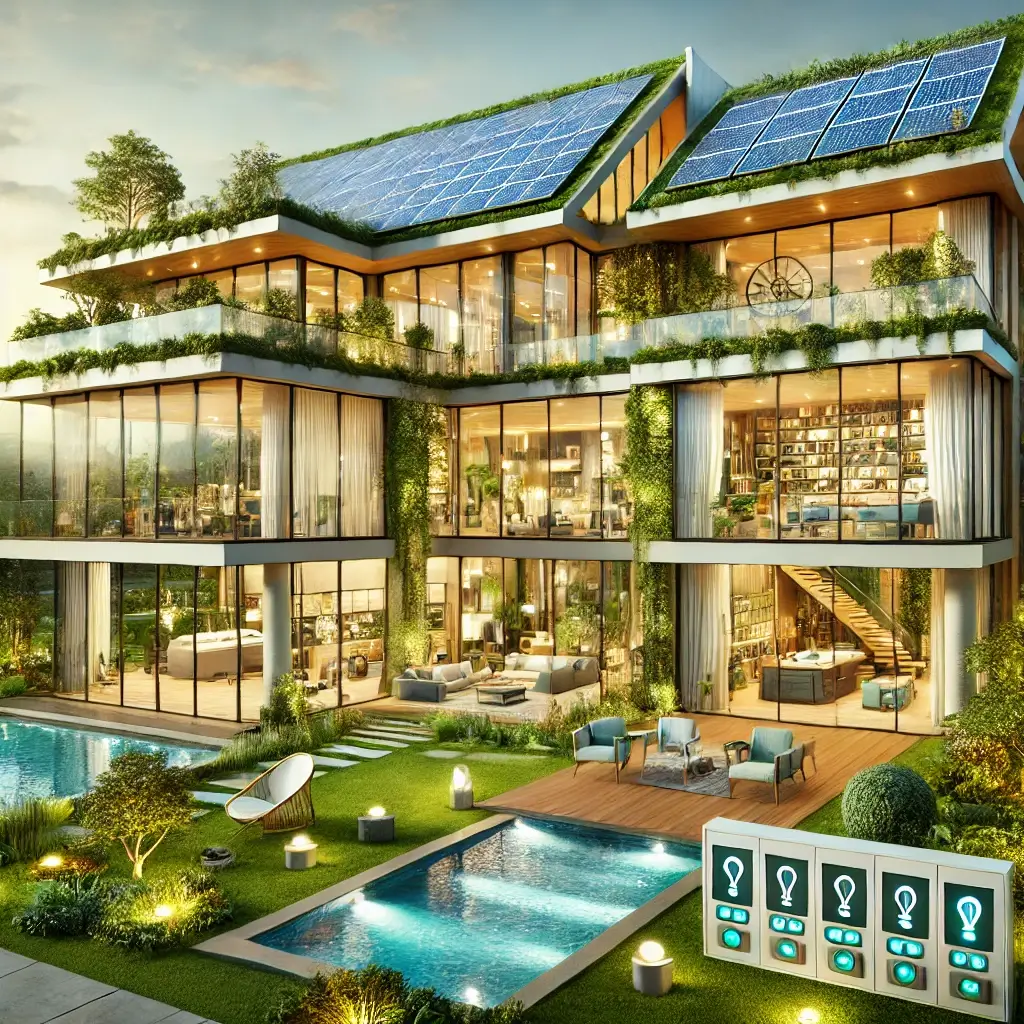The Green Revolution Transforming Luxury Real Estate
Luxury real estate is undergoing a profound transformation. Traditional markers of opulence, such as prime locations and bespoke interiors, are now complemented by a new criterion: sustainability. Increasingly, affluent buyers and investors are prioritizing properties that marry high-end living with environmental responsibility. According to the 2024 Knight Frank Sustainable Luxury Property Report, green-certified properties command price premiums ranging from 25% to as much as 55%, depending on the certification and market context. This evolution signifies more than a passing trend; it marks a fundamental shift in what defines luxury in the modern era. This article examines the market drivers behind green certifications, the technical innovations fueling this shift, and the investment implications for stakeholders.
Financial Benefits That Transform Property Value
Green certifications are more than just eco-labels; they are powerful market differentiators that enhance a property’s appeal and financial performance. Certifications like LEED Platinum and the Living Building Challenge not only underscore a property’s sustainability credentials but also signal operational efficiency and resilience.
Premium Certifications Driving Market Success
LEED Platinum: Properties with this prestigious certification often achieve a price premium of 35-45%, selling up to 40% faster than uncertified equivalents (Knight Frank, 2024). These properties benefit from reduced energy costs, enhanced indoor air quality, and preferential financing options.
The Gold Standard in Sustainable Luxury Living
Living Building Challenge: This rigorous certification delivers even higher premiums of 45-55%, attracting buyers who prioritize sustainability and innovation (Morgan Stanley, 2024).
Long-Term Value Creation Through Operational Excellence
Furthermore, operational savings associated with certified properties—such as energy savings of 30-40% and water savings of 30-35%—contribute to their long-term value proposition (USGBC, 2024).
The New Frontiers of Sustainable Luxury
The luxury real estate market is increasingly defined by innovations that integrate cutting-edge technology with sustainability principles. Key trends include:
Revolutionizing Energy Independence in Premium Homes
Net-Zero Energy Design: Technologies like geothermal heating, solar energy systems, and smart grids are becoming standard in high-end developments, reducing operational costs and boosting market appeal (Environmental Building News, 2024).
Sophisticated Water Solutions for Discerning Homeowners
Advanced Water Management: Rainwater harvesting and greywater recycling systems are integral to certified properties, reflecting a commitment to resource efficiency.
Elevated Aesthetics Through Sustainable Materials
Premium Material Selection: Certified properties often feature locally sourced, sustainable materials that combine luxury with environmental responsibility.
Powerful Forces Reshaping the Luxury Market
Two forces are accelerating the adoption of green certifications in luxury real estate: evolving regulations and changing consumer preferences.
Government Initiatives Creating Market Advantages
Regulatory Push: Governments worldwide are introducing stricter building codes and carbon tax initiatives that favor sustainable developments. For example, the EU’s Energy Performance of Buildings Directive mandates high-efficiency standards for new constructions, pushing developers toward certifications (World Green Building Council, 2024).
Wealthy Buyers Leading the Eco-Luxury Movement
Consumer Awareness: Wealthy buyers are increasingly prioritizing properties that align with their values, including environmental stewardship and social responsibility.
Proven Success Stories in the Green Luxury Market
Real-world examples illustrate the tangible benefits of green certification. In Los Angeles, a LEED-certified luxury development achieved a 50% faster sales cycle compared to similar uncertified properties. In Seattle, a Living Building Challenge-certified project garnered a 55% premium due to its energy independence and cutting-edge sustainability features (Journal of Sustainable Real Estate, 2024).
Global Hotspots Setting New Standards
Globally, cities like Singapore and Stockholm are setting benchmarks in sustainable luxury, with high demand for certified properties among affluent buyers. These markets demonstrate how sustainability can coexist with exclusivity, offering insights for developers and investors.
Essential Strategies for Market Leaders
For stakeholders in luxury real estate, the rise of green certification offers both opportunities and challenges. To capitalize on this trend, consider the following:
Selective Certification Approaches for Maximum Returns
Targeted Investments: Focus on certifications that resonate with high-end buyers, such as LEED Platinum or the Living Building Challenge.
Geographic Intelligence for Strategic Development
Location Matters: Select markets where environmental regulations and consumer demand for sustainability are strong.
Cutting-Edge Systems for Tomorrow’s Luxury
Technology Integration: Leverage advanced systems like energy storage and real-time monitoring to enhance both sustainability and market appeal.
The New Paradigm of Luxury Real Estate
Green certification is redefining the luxury real estate market, offering a compelling blend of environmental responsibility and financial advantage. For developers, investors, and buyers, these certifications are no longer optional; they are essential in a market increasingly driven by sustainability. By aligning with this trend, stakeholders can achieve not only superior market performance but also a meaningful contribution to environmental stewardship.
Industry-Leading Research and Analysis
References
- Knight Frank Sustainable Luxury Property Report 2024
- Morgan Stanley Luxury Real Estate Analysis 2024
- USGBC LEED Market Impact Study 2024
- Living Building Challenge Performance Review 2024
- Environmental Building News Analysis 2024
- Journal of Sustainable Real Estate 2024
- World Green Building Council Market Report 2024
- Urban Land Institute Green Building Study 2024

